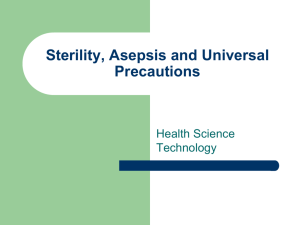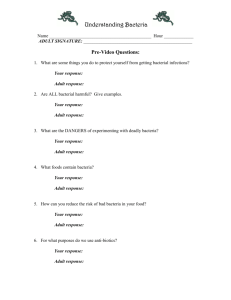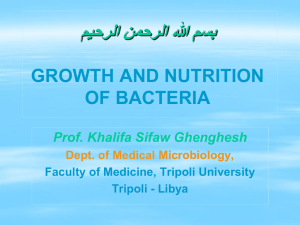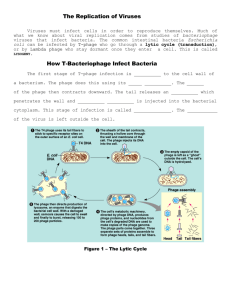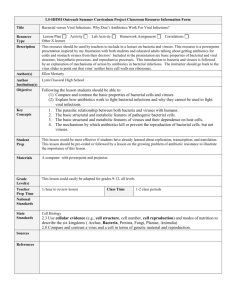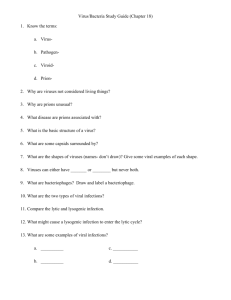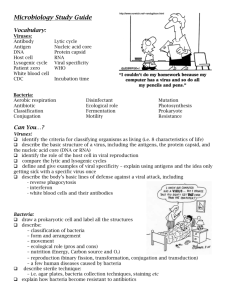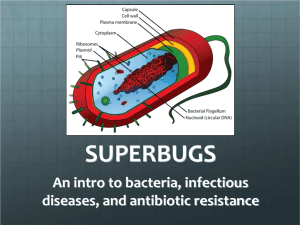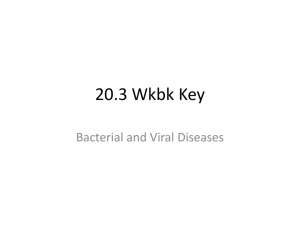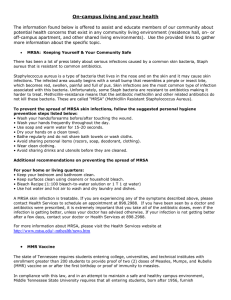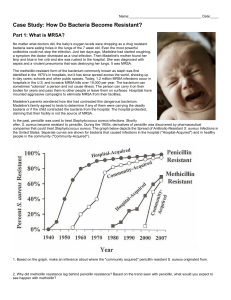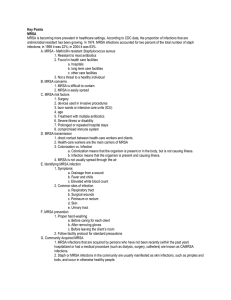20.3 - Images
advertisement
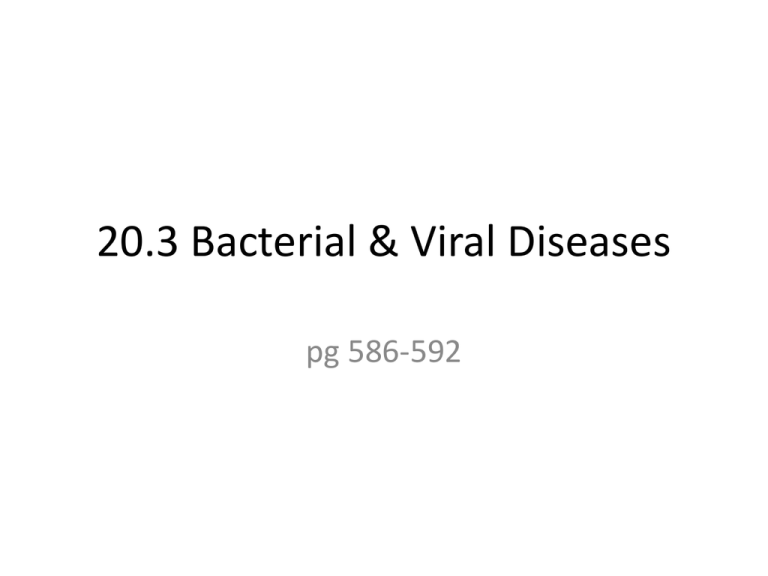
20.3 Bacterial & Viral Diseases pg 586-592 Pathogen- microorganisms that cause disease 2 ways: 1. destroy living cells; tuberculosisdestroys lung tissue 2. releases a chemical that upsets homeostasis; diphtheria, botulism Louis Pasteur Germ Theory of Disease 1800’s Bacterial Diseases: 1. 2. 3. 4. 5. 6. TB Diptheria Lyme Disease Tetanus Strep Throat (Bacterial) Meningitis TB Strep Throat Lyme Disease Vector? Risk Map Type of Bacteria? Tetanus Control Disease 5 ways to control1. physical removal 2. disinfectants 3. proper food storage 4. proper food processing 5. sterilization by heat Vaccines weakened or killed pathogen or inactivated toxin (usually for viral diseases) (prevention) Antibiotics attack bacterial infection (treatment) Viruses -attack and destroy certain cells or cause infected cells to change patterns of growth and development Prevention of viral diseases -vaccines -personal hygiene -Cannot be treated with antibiotics, they only kill bacteria (few antiviral drugs) Viral Diseases: Common Cold Chicken Pox Influenza • Emerging diseases= unknown disease that appears in a population for the first time or a well known disease that suddenly becomes harder to control Little or no resistance to them, no methods of control yet. People travel much more, so easily spread. MRSA, West Nile, Ebola, SARS …….. Emerging Diseases – This map shows locations worldwide where specific emerging diseases have broken out in recent years. – In recent years, new diseases, such as severe acute respiratory syndrome (SARS) in Asia, have appeared. At the same time, some diseases thought to be under control have come back. • Antibiotics kill off the bacteria with no resistance, leaving the resistant ones behind. These resistant bacteria reproduce. • = “Super Bugs” • Ex: MRSA “Superbugs” – An especially dangerous form of multiple drug resistance has recently appeared in a common bacterium. Methicillin-resistant Staphylococcus aureus, known as MRSA, can cause infections that are especially difficult to control. – MRSA skin infections can be spread by close contact, including the sharing of personal items such as athletic gear, and are especially dangerous in hospitals, where MRSA bacteria can infect surgical wounds and spread from patient to patient. Mad Cow Disease Mad Cow Disease • Prions— – Protein infectious particles: brain problem. Misfolded prion proteins cause normal prion proteins to misfold; they accumulate, cells are damaged and cease to function
